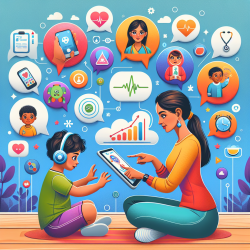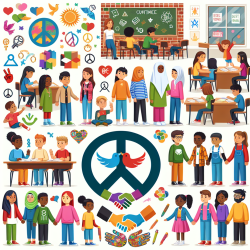Introduction
The COVID-19 pandemic has forced educational systems worldwide to adapt rapidly, often highlighting existing inequalities. In the context of refugee education, these challenges are even more pronounced. The research article, "An Informal Education Intervention in Response to the Covid-19 Pandemic: Homework Mentorships in a Berlin Refugee Shelter," provides valuable insights into how informal education interventions can help bridge the gaps in formal education systems, particularly for refugee children.
Understanding the Context
The study focuses on a digital homework mentorship program implemented in a Berlin refugee shelter during the pandemic. The program aimed to address the educational and social isolation challenges faced by refugee children due to school closures. Grounded in socio-cultural theory, the program did not seek to replace formal education but to supplement it, providing a model that could be replicated in other contexts.
Key Findings and Implications
The research highlights several critical outcomes:
- Enhanced Learning Opportunities: The mentorship program provided one-on-one support, allowing children to receive personalized attention and guidance, which is often lacking in formal educational settings.
- Social-Emotional Development: By fostering relationships with mentors, children experienced improved social-emotional well-being, crucial for their overall development.
- Inclusion and Integration: The program helped mitigate the effects of segregation experienced by refugee children, promoting a sense of belonging and inclusion.
Recommendations for Practitioners
Practitioners in the field of speech language pathology and education can draw several lessons from this study:
- Adopt a Holistic Approach: Consider both educational and social-emotional needs when designing interventions for children, particularly those from marginalized backgrounds.
- Leverage Technology: Utilize digital platforms to maintain continuity in education and support, especially during disruptions like pandemics.
- Foster Personal Connections: Encourage mentorship and peer support systems to enhance learning and development outcomes.
Encouraging Further Research
While the study provides a promising model, further research is needed to explore the long-term impacts of such interventions and their scalability. Practitioners are encouraged to engage in research to develop data-driven solutions tailored to their specific contexts.
Conclusion
Informal education interventions, like the homework mentorship program in Berlin, offer valuable insights into creating inclusive and supportive educational environments for refugee children. By integrating these findings into practice, practitioners can contribute to better educational and developmental outcomes for all children.
To read the original research paper, please follow this link: An Informal Education Intervention in Response to the Covid-19 Pandemic: Homework Mentorships in a Berlin Refugee Shelter.










